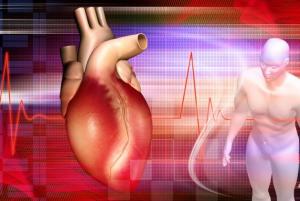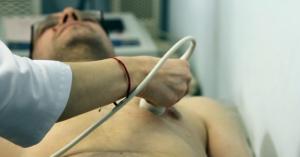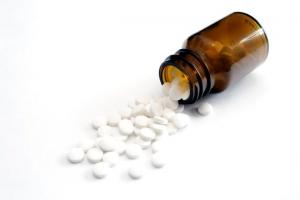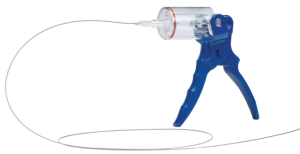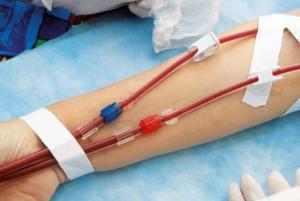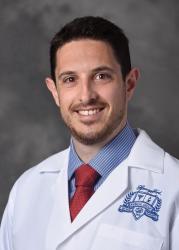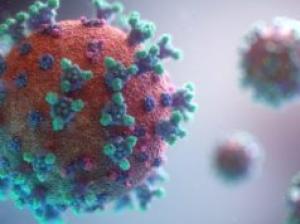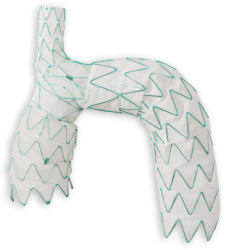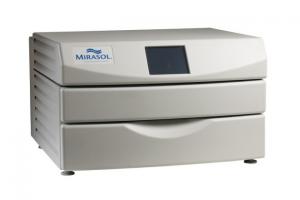The American College of Cardiology (ACC) is start to collecting COVID-19 data through the NCDR Chest Pain-MI and CathPCI registries with the aim of capturing the relationship between COVID-19 and heart disease and maximise data on the cardiac impact of the virus. A press release reports that hospitals already participating in these registries will have the first opportunity to add to the world’s growing knowledge on the impact of the virus on cardiovascular disease and engage in the global conversation on best patient care in the pandemic.
A joint UK-US research team is applying an artificial intelligence (AI) system to map for the first time how the COVID-19 virus attacks the heart with such deadly impact. This week, British health-tech company Ultromics and Mayo Clinic in the USA will use AI software, EchoGo Core, to analyse echocardiograms of COVID-19 patients, for clues about how the virus affects the human cardiovascular system.
Corresponding author Valentin Fuster (Mount Sinai Heart, New York, USA) and colleagues report in the Journal of the American College of Cardiology that hospitalised COVID-19 patients treated with anticoagulants had improved outcomes both in and out of the intensive care unit setting. They add their work outlines an important therapeutic pathway for COVID-19 patients.
Control Medical Technology has announced that the US Food and Drug Administration (FDA) has cleared its Aspire MAX 7 – 11F mechanical thrombectomy platform to remove blood clots from peripheral vessels.
APERTO, Cardionovum’s paclitaxel-coated balloon for arterio-venous access, has received market approval for China, making it the first high pressure drug-coated balloon (DCB) available in China to treat obstructive lesions of native arterio-venous dialysis fistulae (AVF).
A BIBA MedTech Insights survey indicates that 50% of centres performing structural heart procedures believe that they will need to increase the number of operating days per week to manage the elective cases that have been put on hold because of COVID-19. However, 22% believe that no extra measures will be required and the backlog will be cleared in time.
According to recently presented TICO trial data, a press release reports, patients with acute coronary syndrome treated with the Orsiro drug-eluting stent (Biotronik) benefit from stopping aspirin three months after stenting and continuing only with ticagrelor monotherapy. Yang Soo Jang (Yonsei University College of Medicine, Seoul, South Korea) presented the results in a virtual late-breaking clinical trial session at the American College of Cardiology/World Congress of Cardiology’s virtual scientific sessions (ACC.20/WCC Virtual).
A new study has found no significant differences in hospital mortality between multivessel percutaneous coronary intervention (PCI) and culprit-vessel only PCI for the management of cardiogenic shock patients who had received early mechanical circulatory support. These findings suggest that, contrary to previous studies, multivessel PCI may be safe in selected cardiogenic shock patients.
On 18 March, the Centers for Medicare & Medicaid Services (CMS) recommended “limiting non-essential care and expanding surge capacity into ambulatory surgical centres and other areas” to conserve resources and staff for managing COVID-19 patients. However, in a statement issued on 19 April, it said it now recognises “at this time, many areas [in the USA] have a low, or relatively low and stable incidence of COVID-19, and that it is important to be flexible and allow facilities to provide care for patients needing non-emergent, non-COVID-19 healthcare”.
Endospan was recently granted breakthrough device designation from the US Food and Drug Administration (FDA) for the Nexus aortic arch stent graft system.
Studies have shown that robotic percutaneous coronary intervention (PCI) with the CorPath GRX System (Corindus, now part of Siemens Healthineers)—compared with manual PCI—reduces radiation exposure to the cath lab staff and may also improve precision. Furthermore, during the current pandemic, it potentially could help to reduce contact with COVID-19 patients undergoing PCI. Jon George (Einstein Medical Center, Philadelphia, USA), who recently performed robotic PCI on a suspected COVID patient, speaks to Cardiovascular News about the role of robotic PCI during a pandemic.
New data suggest that a medical device that uses vitamin B2 and ultraviolet light for treating human blood products is effective against the virus that causes COVID-19. The study results, generated by Terumo BCT in collaboration with top researchers from Colorado State University, have been accepted for publication by Vox Sanguinis.

Performance diagnostique de l’interféron gamma dans l’identification de l’origine tuberculeuse des pleurésies exsudatives

A Mixed Phenotype of Airway Wall Thickening and Emphysema Is Associated with Dyspnea and Hospitalization for Chronic Obstructive Pulmonary Disease.

Radiological Approach to Asthma and COPD-The Role of Computed Tomography.

Significant annual cost savings found with UrgoStart in UK and Germany

Thrombolex announces 510(k) clearance of Bashir catheter systems for thromboembolic disorders
Phone: (028) 3981 2678
Mobile: 0903 839 878 - 0909 384 389








